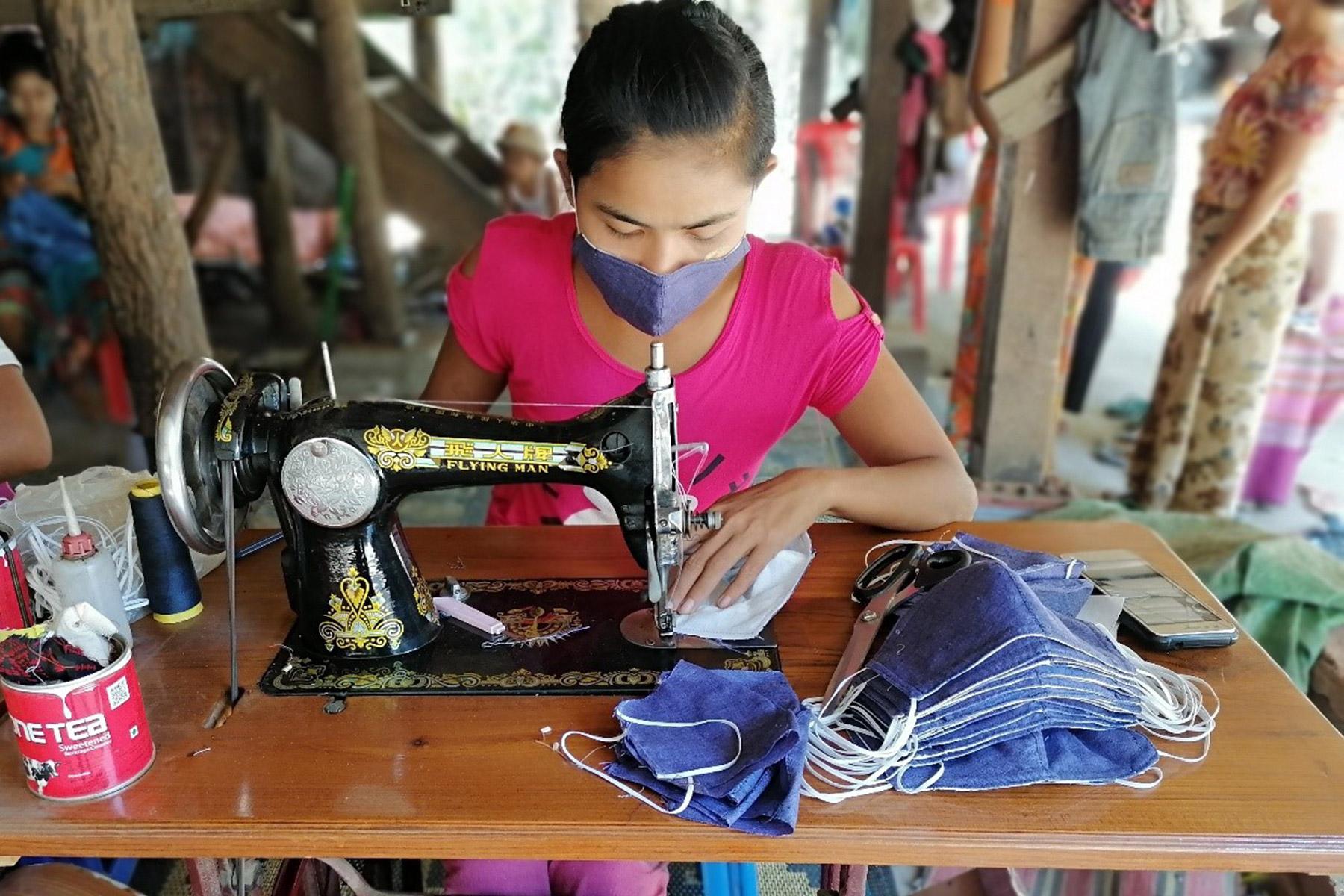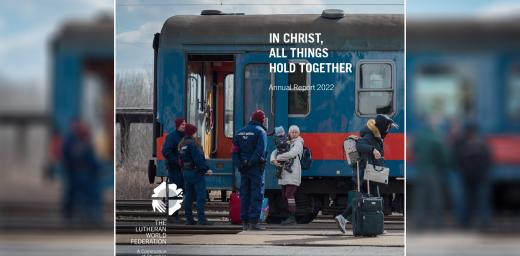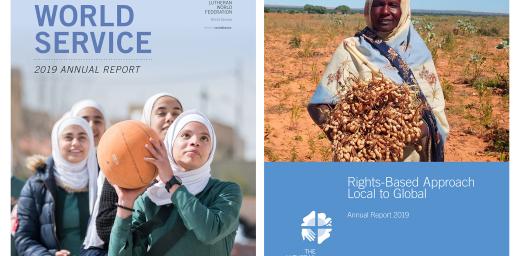Annual report shows how LWF adapted its humanitarian and development work to COVID-19 pandemic

A woman entrepreneur sews cloth face masks in Sittwe, Rakhine State, Myanmar. Photo: LWF/Nu Nu Aye
Learning “how to operate in the middle of a new global threat”
(LWI) – The Lutheran World Federation (LWF) has published an annual report highlighting the outcomes of humanitarian response and development work in a unique year of the COVID-19 pandemic.
The LWF World Service Annual Report 2020 shows LWF’s response to unprecedented needs in 27 countries around the world while sustaining the core work of providing protection and social cohesion, sustainable livelihoods, and quality services. It complements the LWF Annual Report 2020.
It conveys “how our work was impacted deeply by this new disease, and how we needed to learn how to operate in the middle of a new global threat,” World Service Director Maria Immonen writes in the introduction.
The report shows how our work was impacted deeply by this new disease, and how we needed to learn how to operate in the middle of a new global threat.
Measures to contain the spread of coronavirus and travel restrictions posed additional challenges for timely and effective response to other crises. For LWF, this meant stepping up the capacity to support the most vulnerable people in the face of natural and human-made disaster including conflict, recurring drought, storms and deteriorating political and economic conditions. In 2020, LWF’s humanitarian and development work reached over 2.4 million people through the work of its country programs and regional emergency hubs, sometimes in collaboration with member churches.
A key dimension of this work is to support and empower people to bring about transformation in their lives and communities. The effect of this rights-based approach is presented in the report, including testimonies and messages by refugees, students, medical and psychosocial workers, and women group leaders, among others.
Read more in the report about COVID-19 emergency relief, LWF’s unique health services at the Augusta Victoria Hospital in East Jerusalem, response to tropical storms in Central America and to locust infestation in the Horn of Africa, as well as sustained support to refugees in several countries including Myanmar’s Rohingya in Bangladesh.
By LWF/P. Mumia





